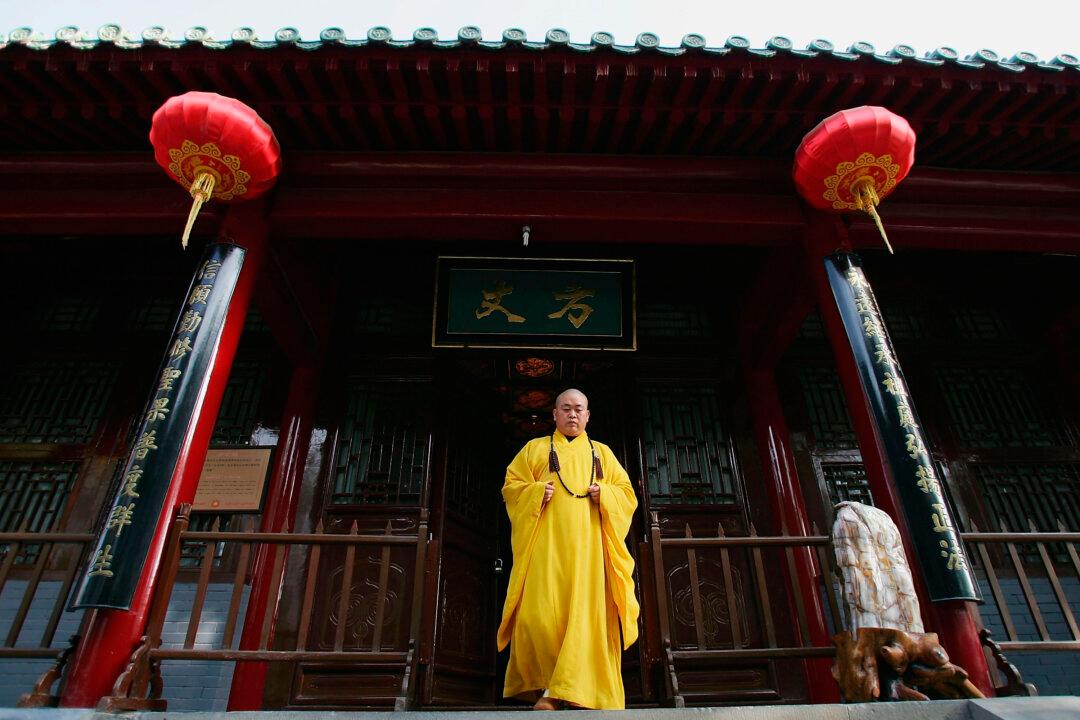In ancient China, monks lived a celibate spiritual life and devoted their time to Buddhist studies.
But in modern-day China, some monks have led a sordid life at night while pretending to be religious practitioners during the day.
Song Zude, a well-known Chinese entertainment critic, recently wrote on his Sina Weibo account, a platform similar to Twitter, that some Chinese temples have begun contracting out a unique service.
A group of businessmen make special arrangements for monks—only those who are good-looking—to become male “sugar babies” for wealthy Chinese women.
Song wrote that some of these monks have come to earn as much as several million yuan a month (1 million yuan equals $147,650) from money and gifts that their female clients give.
Some monks have bought expensive sports cars and houses, while some have amassed enough wealth to become “sugar daddies” themselves and engage in relationships with younger women.
These monks continue to put on their monastery robes during the day, but put on a suit at night to meet with women.
On WeChat, a social media account with the name “Tian Ya Lian Xian” put up an article in response to Song’s claims.
The WeChat article stated that Song’s claims were not surprising, as it is widely known in China that businessmen take out such contracts with temples. In other words, monks are simply hired by these businessmen to provide sexual services.
According to the WeChat article, the businessmen also hire the monks to do fortune telling and carry out fake religious rituals to generate income for themselves.
Several well-known Chinese monks have engaged in similar promiscuous behaviors.
Shi Yongxin, abbot of the famous Shaolin Monastery and vice president of China’s state-controlled Buddhist Association of China, was exposed by Chinese media in 2015 to have fathered two illegitimate children. He was also accused of having illicit relationships with several women, including nuns and believers, as well as embezzling funds from the monastery.
According to Chinese state-run media The Paper, Shi was also a former member of China’s rubber-stamp legislature, the National People’s Congress, from 1998 to 2018.
In August last year, Xue Cheng, president of the Buddhist Association of China, quit his position after he was accused of sexually assaulting his female disciples and psychologically manipulating them. According to Reuters, he was also allegedly involved in a corruption scheme involving 10 million yuan ($1.64 million).
Xue was a Communist Party member who was part of the Standing Committee of the Chinese People’s Political Consultative Conference, a political advisory body.
On Weibo, some Chinese netizens were stunned upon learning about Song’s claims.
A netizen from coastal China’s Zhejiang Province sarcastically wrote, “You can sign a contract with a temple? What a strange country.”
Meanwhile, a netizen from Beijing had a suggestion: “Let’s get some pieces of evidence and drive these monks out of the temples.”




